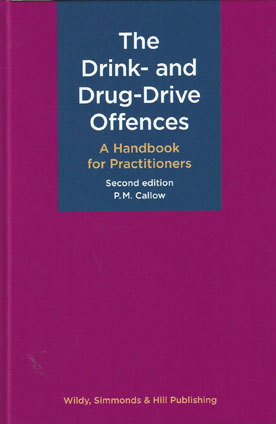
The provisions on drink-and drug- driving, and their statutory predecessors, have undoubtedly contributed to greater road safety. The conviction rate is extremely high, running at 95 per cent.
The consequences of conviction for a drink- or drug-drive offence go beyond the immediate penalty of a fine, a community penalty or imprisonment. They include disqualification from driving, which may not simply inconvenience the offender, but may lead to loss of employment and, in due course, to greatly increased insurance premiums.
Since the first edition of this book was published in 2011, there have been two major changes. First, the new section 5A of the Road Traffic Act 1988 came into force in March 2015 and created the offences of driving, attempting to drive or being in charge with a concentration of a specified controlled drug above the specified limit for that drug.
This second edition includes new material which describes the new offence. As far as possible, the provisions under s 5A mirror those relating to excess alcohol, but the seventeen drugs in question are very different from alcohol, and from each other. The law on s 5A is no doubt set to develop over the years to come. Secondly, the so-called ‘statutory option’ has been removed (except in Northern Ireland, the Isle of Man and the Channel Islands).
The new edition of The Drink- and Drug-Drive Offences: A Handbook for Practitioners (formerly The Drink-Drive Offences: A Handbook for Practitioners) provides a practical, comprehensive, accessible and up-to-date account of this broad area of law. The book brings together the statutory provisions and the case law on the drug- and drink-drive offences, elucidating issues which are often surprisingly difficult.
It is intended for all practitioners concerned with this area of law, whether police, prosecution or defence, and adopts a neutral standpoint between their various interests.